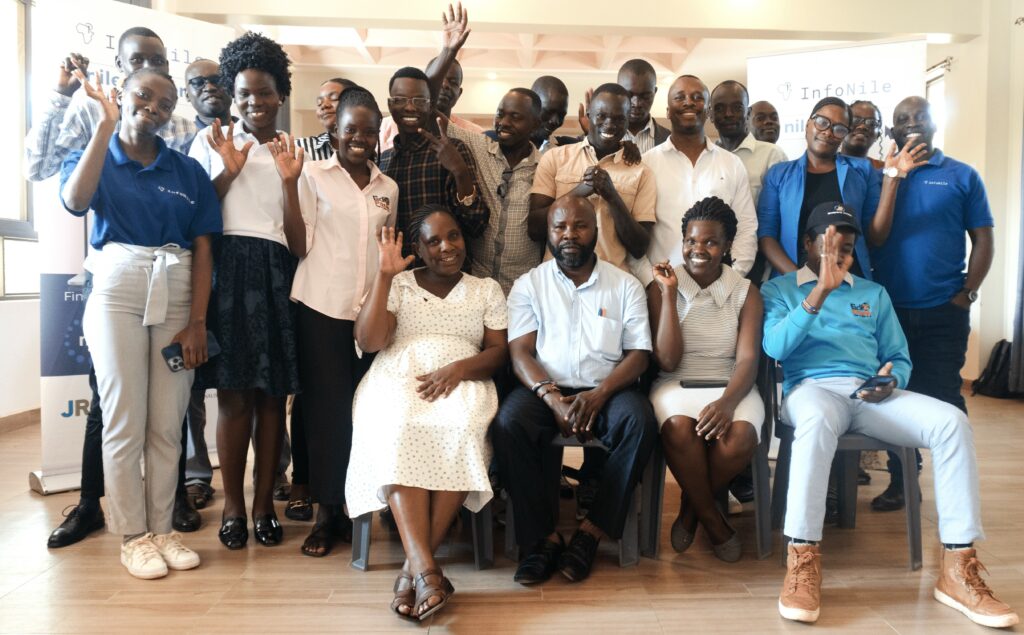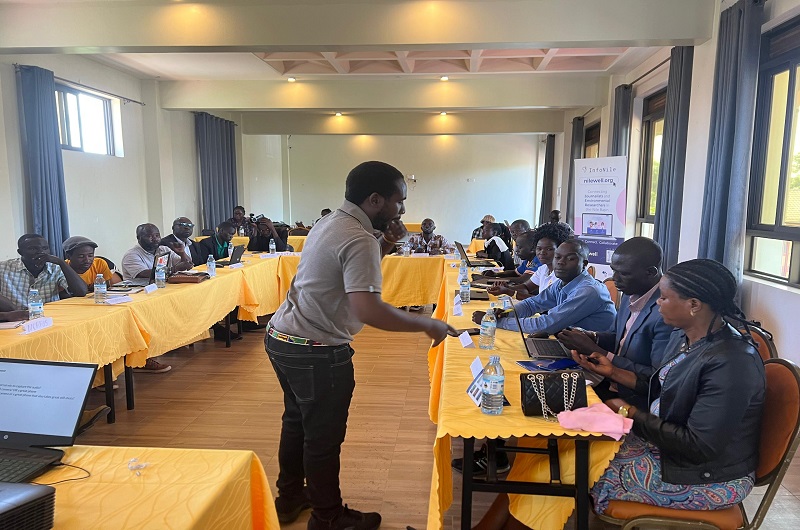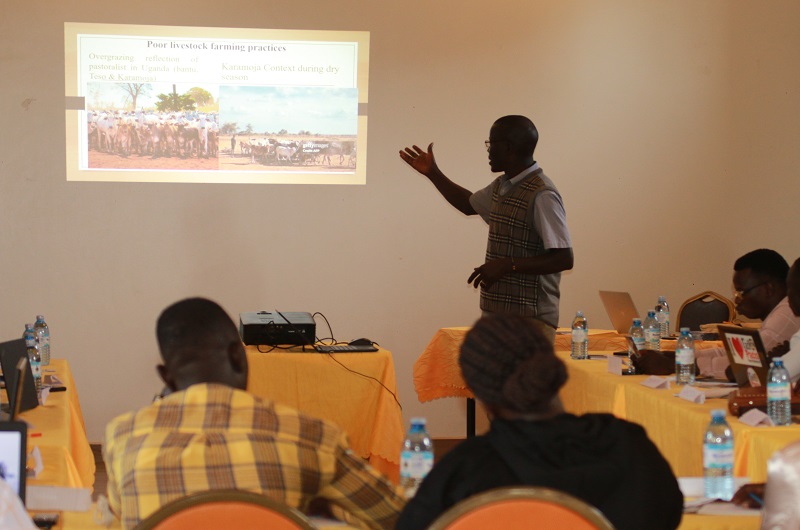WEST NILE: Journalists Trained On Climate Smart Agriculture Reporting

InfoNile staff and journalisyts share a light moment after completing the first phase of the training in Arua Cit on Wednesday
ARUA. A section of journalists in the West Nile sub-region have been empowered with skills to investigate and report issues triggering climate change and its mitigation measures.
Climate change currently manifests itself in prolonged drought, flush floods and increased temperatures arising from increased and degrading human activities on the environment.
West Nile sub-region continues to experience hash climatic conditions which many attribute to the indiscriminate clearing of the natural vegetation for wood fuel and agricultural practices,
The five-days training which started on Monday, November 11, 2024 is focused on climate smart agriculture, targeting journalists, content creators, and editors in West Nile and Lango sub-regions.
It is aimed at equipping journalists with the knowledge and skills to engage with local communities effectively in sourcing information, reporting about climate smart agriculture, and establishing relationship with researchers.
Andrew Aijuka, the acting Manager for InfoNile, the organization undertaking the training, said journalists in West Nile should make use of the knowledge acquired to inform and educate farmers on the need to practice climate smart agriculture and mitigate climate change

“This is in a bid to make sure that farmers in the Northern region of Uganda adopt the smart ways of doing agriculture. That is why we are bringing the informers of the society who happen to be the journalists and also the gatekeepers of news who happen to be the editors so that they are aware of how important it is for an agriculturalist or a farmer to receive information regarding smart ways of carrying out agriculture, now that we are faced with climate change as a problem,” Aijuka said.
Jonathan Driliga, a facilitator working with Vision Group, challenged the media practitioners to dedicate time and space for stories relating to climate change.
“I think you should go out there and start identifying the most critical issues around. You must actually get out there, identify the experts and start investigating the issues. You need to look out and go back to your newsrooms and dedicate some time. In fact, climate stories should be top on the priority of different media organizations in the region,” Driliga advised.
Meanwhile Stephen Candia, a senior journalist attached to Uganda Radio Network, observed that the effects of climate change are taking a toll on the environment due to the past and current human activities that are rudimental.
“We are living at times when past human activities are taking a toll on the environment. Our grandparents and parents, to say, were not so much concerned about issues of climate. They did their rudimentary agriculture and when other activities like going commercial also came into our area, people started cultivating crops like tobacco which needed a lot of firewood for curing and so all these things, we were not taking any precautions about them,” Candia said.
“Now we are hearing about flash floods, we are hearing of scorching sun heat which is taking a toll on us but people are not understanding why these things are coming and yet these are resulting from the activities that many of our people have been undertaking. So, for us as journalists, we now understand what is causing this. We have to educate our people and also be exemplary, for example by planting trees and sensitizing the community on what to do to mitigate the effects of climate change,” Candia remarked.

West Nile is one of the regions in Uganda affected by climate change due to poor farming practices such as deforestation, wild bush burning, poor waste management and negative attitude which has drastically reduced the soil fertility and crop yields.